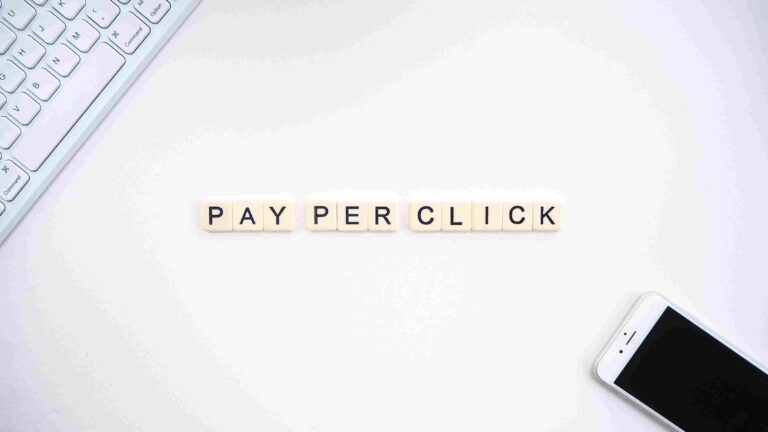While curating PPC campaigns, you have to choose a keyword match type for bidding to let Google know how aggressively or restrictively you want it to match your ads to keyword searches. When advertising, there are three different types of keyword match for Google Search Ads to choose from: Broad Match VS Phrase Match VS Exact Match.
In this article, we will be discussing all three keyword: Broad Match VS Phrase Match VS Exact Match and how they differ. We will also highlight why keyword match types are important to ensure successful PPC ad campaigns.

What are the keyword match types?
There are three keyword match types for text ads in a PPC campaign; Broad Match VS Phrase Match VS Exact Match. Each one of them has its own advantages and disadvantages. Let’s explore them in detail.
Broad Match Type
It is the default match type, and among all the keyword match types available, broad match casts the widest net.
When using broad match for a keyword, Google will show your ad to people with search queries that include any word in your key phrase, in any order. For example, let’s say your keyword is ‘search engine optimization services.’ and you are using broad match type. Your ad might be displayed if a user types “Search Engine Optimization Services For E-commerce” or “Search Engine Optimization Services Price.” Google may also show your ad if the query has synonyms – for instance, your ad might display when someone searches for “how to rank your website for Google,” which doesn’t include any of the terms in your keyword.
Broad match keywords are a great way to drive lots of expressions and clicks, but they pull a significant amount of irrelevant traffic that does not convert, and the costs add up surprisingly fast. Therefore, since this keyword match type is set by default, advertisers need to be very careful and closely monitor their search query reports to avoid paying for irrelevant traffic that doesn’t convert.
Phrase Match Type
Unlike Broad Match Type, Phrase match offers a higher level of control along with the versatility of broad match. Using this match type ensures that your ad only appears when a user enters your key phrase in the exact order you chose for your campaign. However, there might be the addition of other words either before or after that phrase.
Originally there were four keyword match types available for Google PPC ads, but recently Google removed ‘modified broad match’ and merged it into phrase match. After this update, phrase match keywords now display your ad to a much larger queries set. So if your phrase match keyword is “best cars in the US,” your ad could show for ‘where to find the best cars in the US’.
Exact Match Type
If you want to be most specific and restrictive, the Exact keyword match type is your best bet. However, unlike the past few years, Google not only restricts your ads to users who typed your exact keyword phrase but also caters to searches containing synonyms, plurals, or other variations on your keyword.
This match type drives the least amount of traffic but the most relevant traffic that is more likely to be interested in your product or service, resulting in increased conversions. While conversion rates would be high, using exact match can reduce unwanted costs.
What Does Google Count As A Close Variation?
So far, we understand that Google automatically lumps very similar terms with your keyword. However, it is good to know what is considered a close variation by Google to make informed decisions for your campaigns. As shared by Google, close variations include all of the following:
- Common misspellings
- Singular versions of plural words, and vice versa
- Acronyms
- Abbreviations
- Stemmings, or words that all have the same root – e.g. cook, cooking, and cooked
- Accents
What Is A Negative Match?
As discussed earlier, Google often uses synonyms, plurals, or other variations on your keyword to show your ad, but some of them might be very irrelevant. In this case, negative match lets you specify words you don’t want your ad to show for. This will restrict Google from showing your ads to any of those queries. Use Negative match to optimize your Google PPC ad campaigns to ensure that your advertising dollars are not wasted, and the bounce rate does not increase.
You can add a word as a negative keyword by simply including a “-” before it.
Broad Match VS Phrase Match VS Exact Match: Which Keyword Match Type You Should Use?

Broad Match Type Keywords:
These should be used at the time of setting up a new campaign to source new keywords. You can also use these to expand the opportunity window while carefully reviewing the search terms, adding irrelevant to negative keywords to avoid irrelevant traffic.
Also, a broad match is an excellent way to get an insight into the keyword’s performance since it caters to a larger volume of search queries.
Phrase Match Type Keywords:
These are ideals for businesses who wish to target the exact order or sequence of the keyword. For instance, Newyork Hotels (being the brand name) may attract unwanted search queries when put under broad match type such as hotels in New York. However, if Phrase match type “Newyork Hotels” is used, the ad will be displayed for search queries with the brand name written in the same order.
Exact Match Type Keywords:
They allow you to exercise tight control over your advertising budget, giving you a better ROI on your ad investment. However, Exact Match misses out on valuable long-tail keywords resulting in lost opportunities for conversions.
Broad Match VS Phrase Match VS Exact Match: Conclusion
In a nutshell, your Google PPC ad campaign should encapsulate all types of keywords to ensure a balanced approach towards exploring potential customers. This requires you to closely monitor and optimize your campaign frequently but saves you money and translates into higher ROI. Also, make sure you use the right ad copy. You can use ChatGPT to write ad copies for your PPC campaigns.
However, over time, the results in the form of data help you analyze the right keywords that you should be targeting, depending on your niche, competition for the keyword, and objective.
Let The Experts Handle Your Campaign
Understanding these technicalities can be overwhelming so it is always better to get in touch with an expert. Let our team of experts at AdRush Digital take care of it for you. We also provide Social Media Marketing, Email Marketing, Content Marketing, Search Engine Marketing, and Search Engine Optimization (SEO). Visit our website for Free Consultation.


